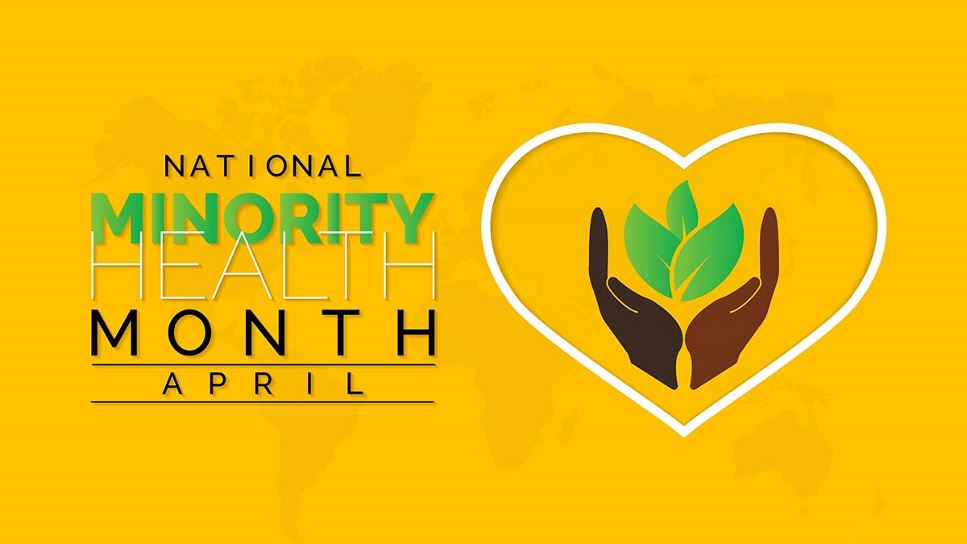People who identify as racial or ethnic minorities in the United States experience an increased risk for chronic health conditions, such as heart disease and Type 2 diabetes, in comparison to white Americans. National Minority Health Month encourages awareness and action to reduce unfair and unjust health care differences — health disparities or health inequities — in minority populations in the U.S.
A variety of factors can contribute to these disparities in health, such as limited access to affordable and healthful food and lack of safe outdoor spaces for physical activity. People also may be more reluctant to seek help for medical conditions due to fear of judgement or lack of trust in their health care providers.
Although it is only part of the equation, adequate nutrition and physical activity can help reduce the risk of developing, as well as assist in managing, certain chronic health conditions. Here are some ways to observe National Minority Health Month:
- Assess your risk by getting screened for health conditions, such as high blood pressure, and encourage friends, family and neighbors to do the same.
- Strive for open communication with your health care provider. Write down any questions you might have before your appointment and consider having a friend or family member join you at appointments.
- If your household qualifies, look into programs that promote access to affordable and healthy foods, such as the Special Supplemental Nutrition Program for Women Infants and Children (WIC), the Supplemental Nutrition Assistance Program (SNAP), and the National School Lunch Program (NSLP) and School Breakfast Program (SBP) which provide free and reduced-cost meals to kids.
- If age-appropriate, engage children in activities such as shopping, growing, harvesting and cooking their own food to promote healthy habits and a positive relationship with food at an early age.
- Host or attend health-promoting events. Consider recruiting diverse health professionals to speak to school-age children or attend a local health fair or clinic in your community.
- Contact city officials to advocate for more green spaces and affordable food options in your neighborhood.
For more information on food and nutrition, meet with a registered dietitian nutritionist. An RDN can connect you with resources and provide culturally appropriate recommendations to help you and your family eat healthfully.
Find a Nutrition Expert
Looking for credible nutrition information and recommendations? The Academy of Nutrition and Dietetics' network of credentialed food and nutrition practitioners are ready to help!

